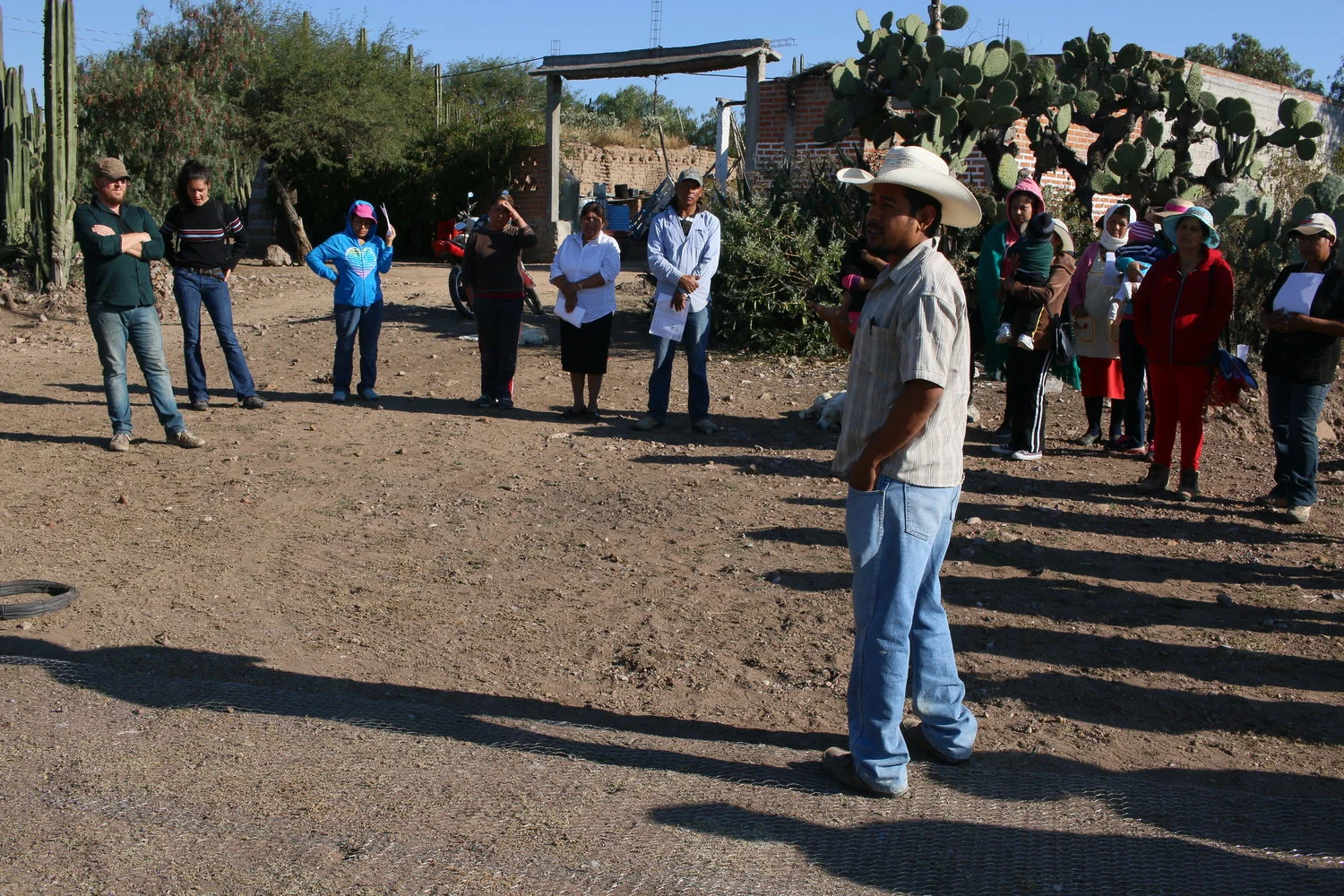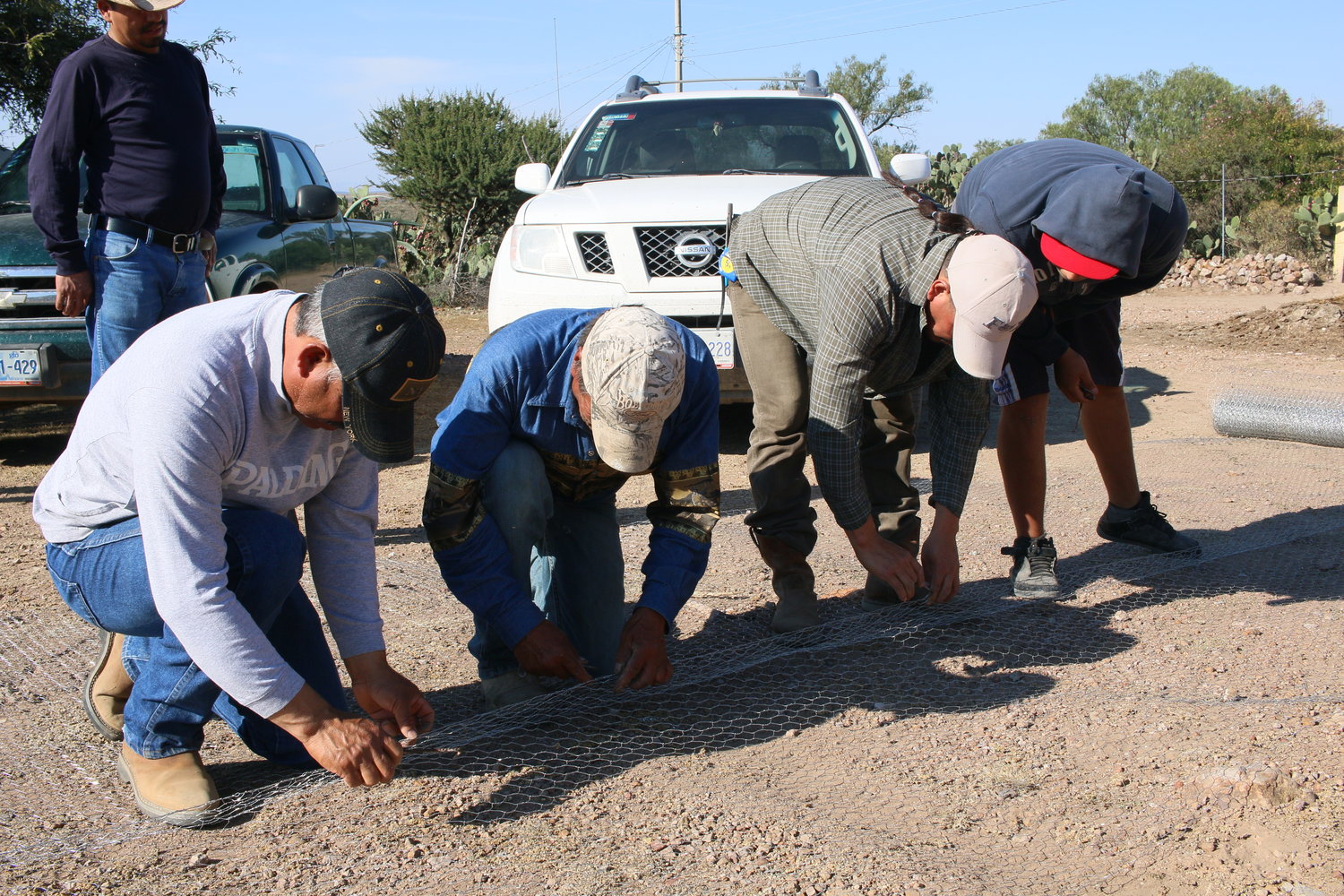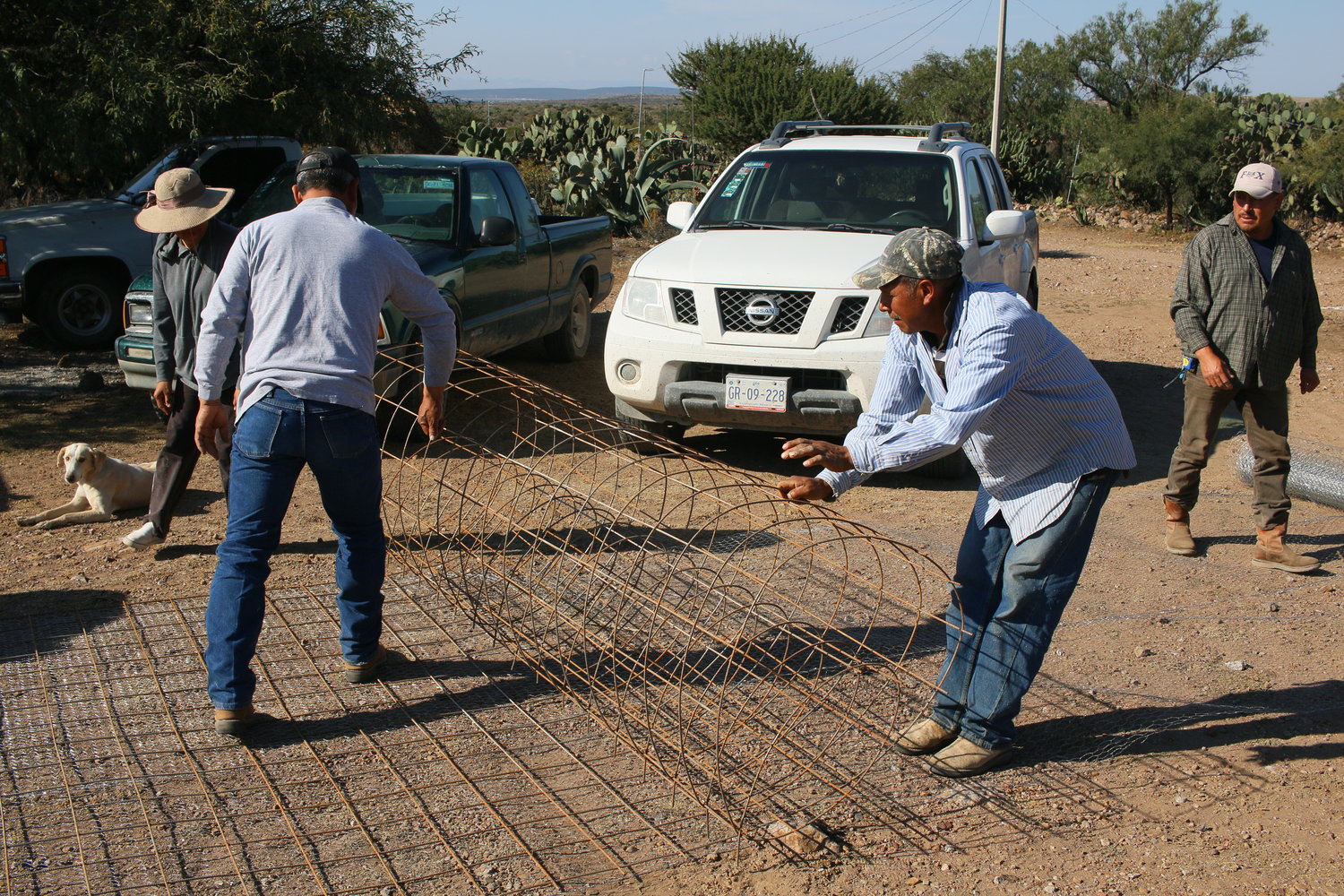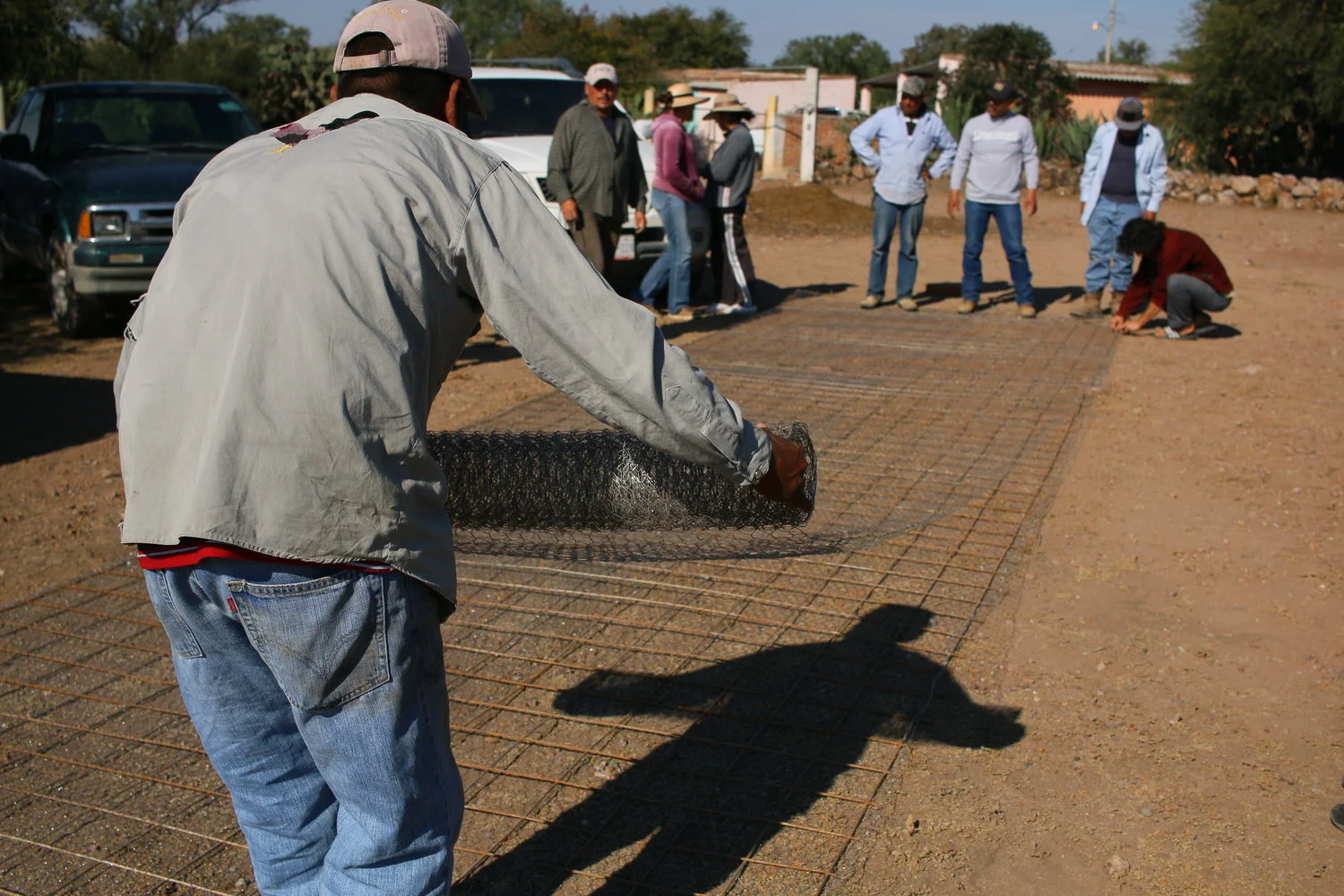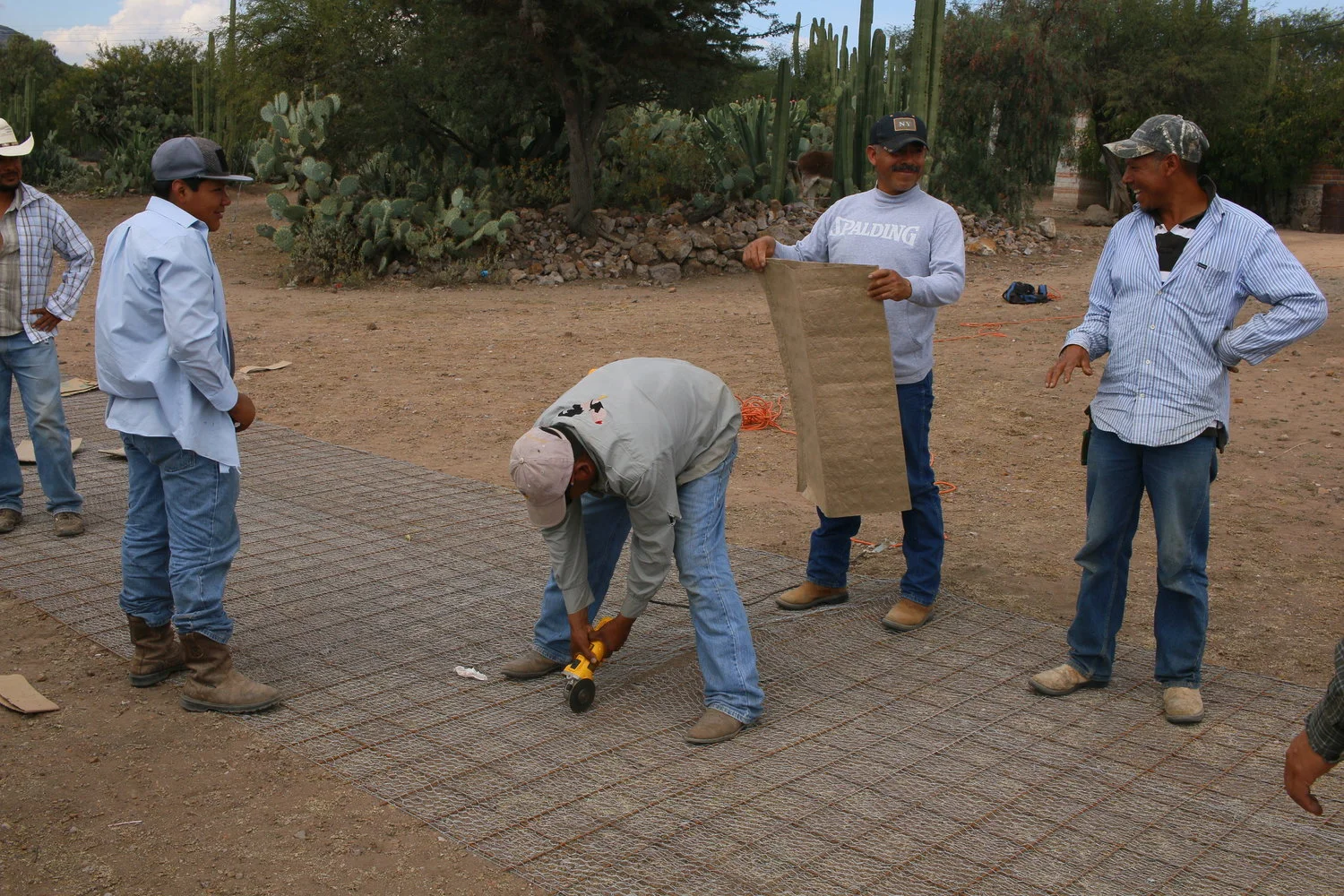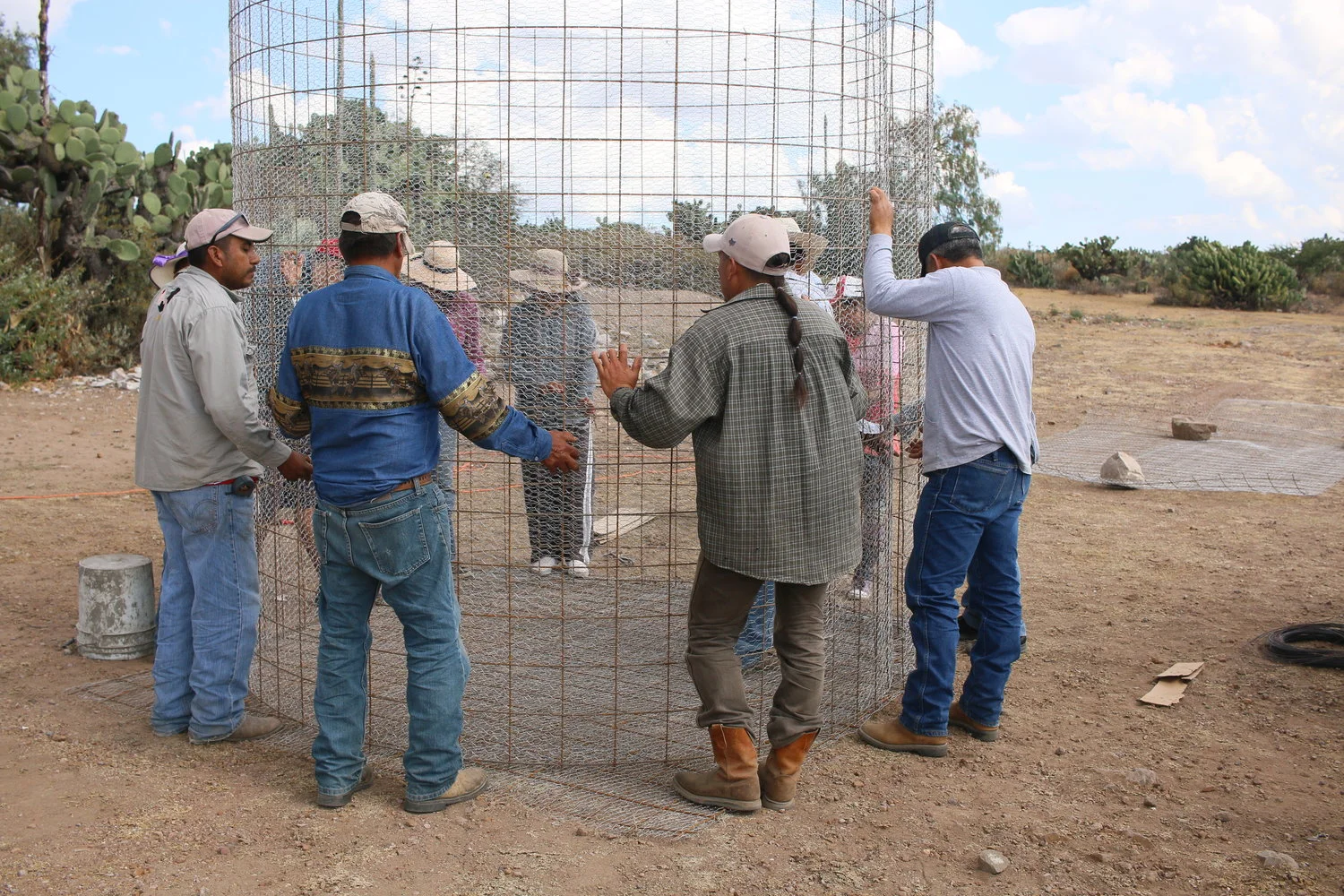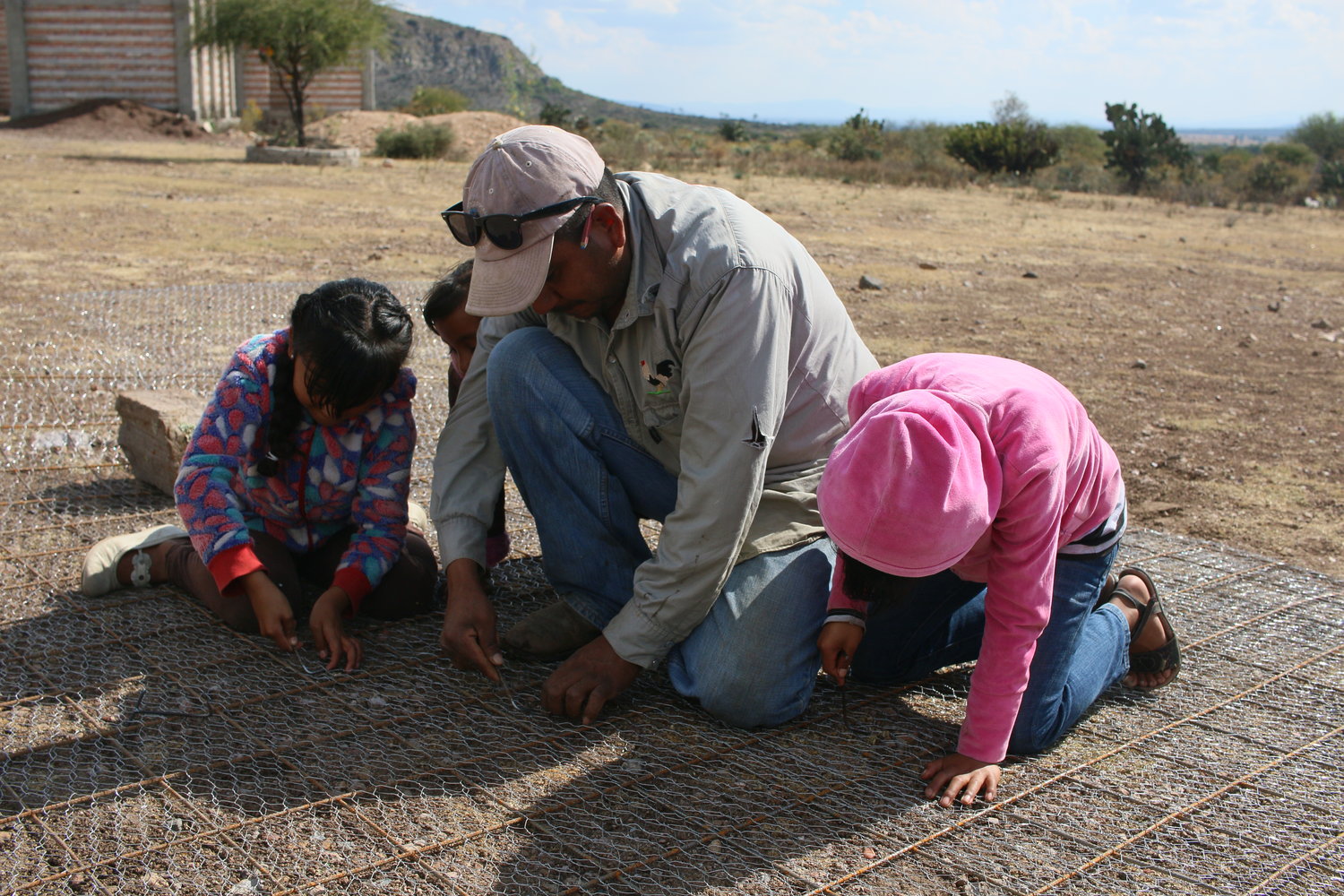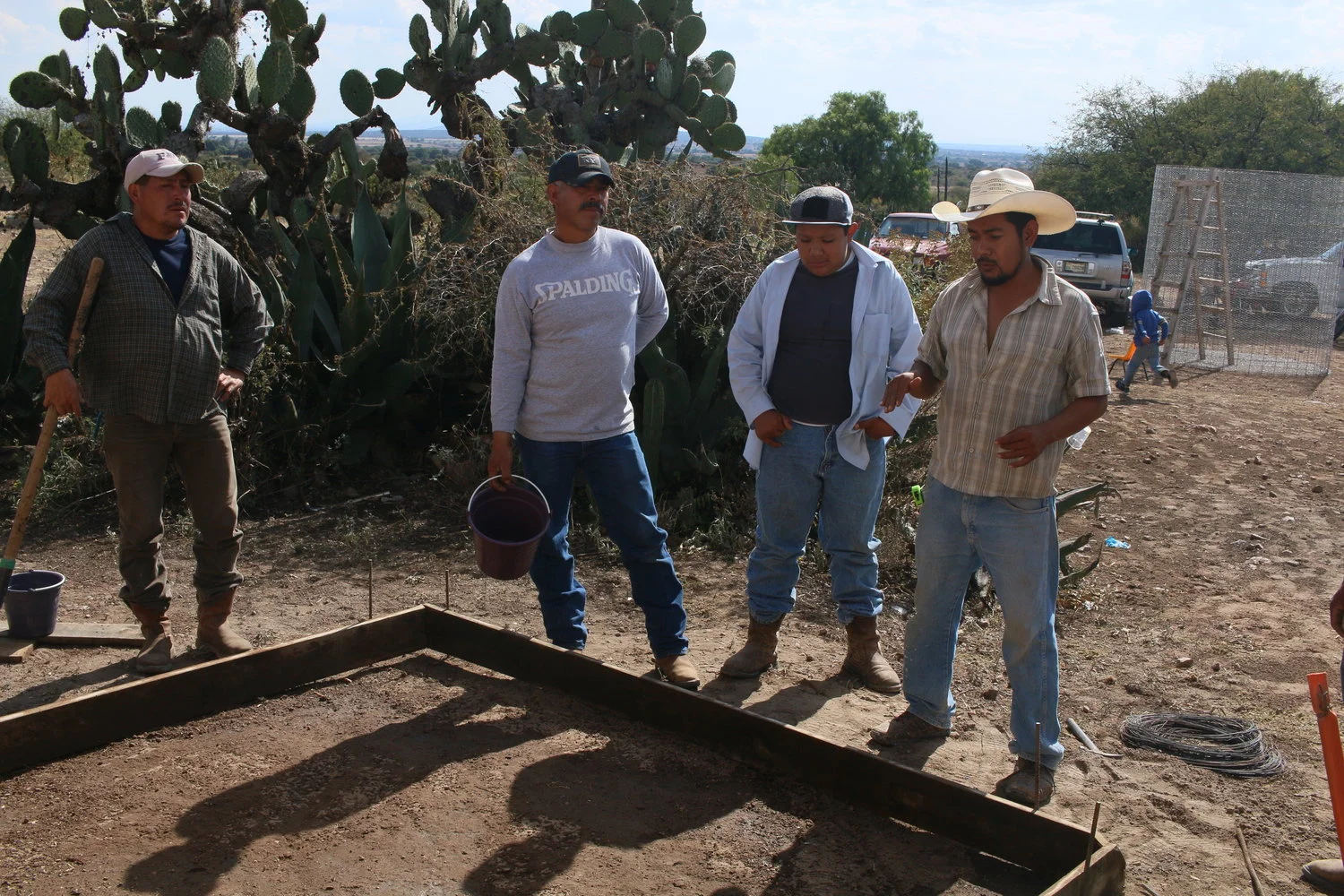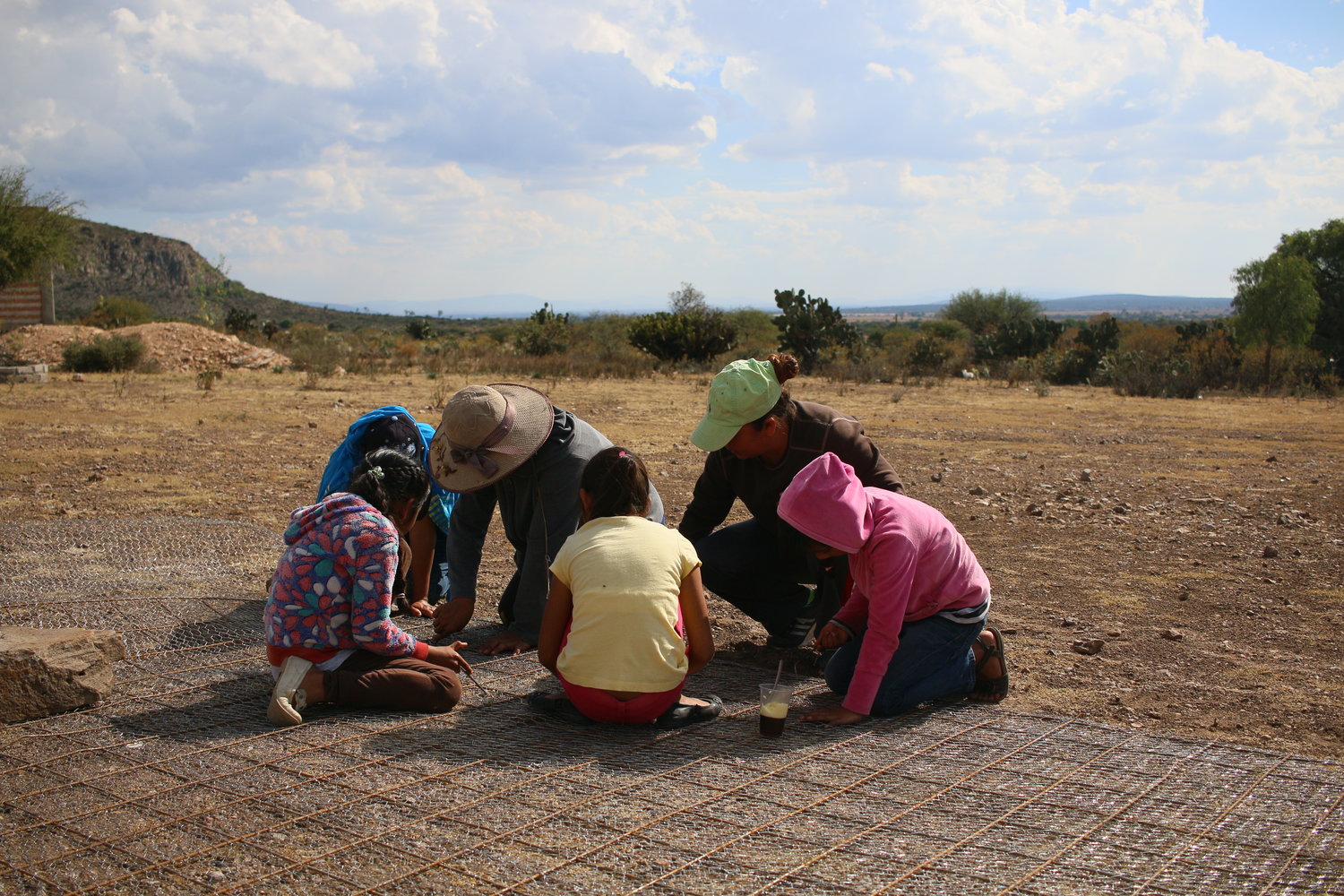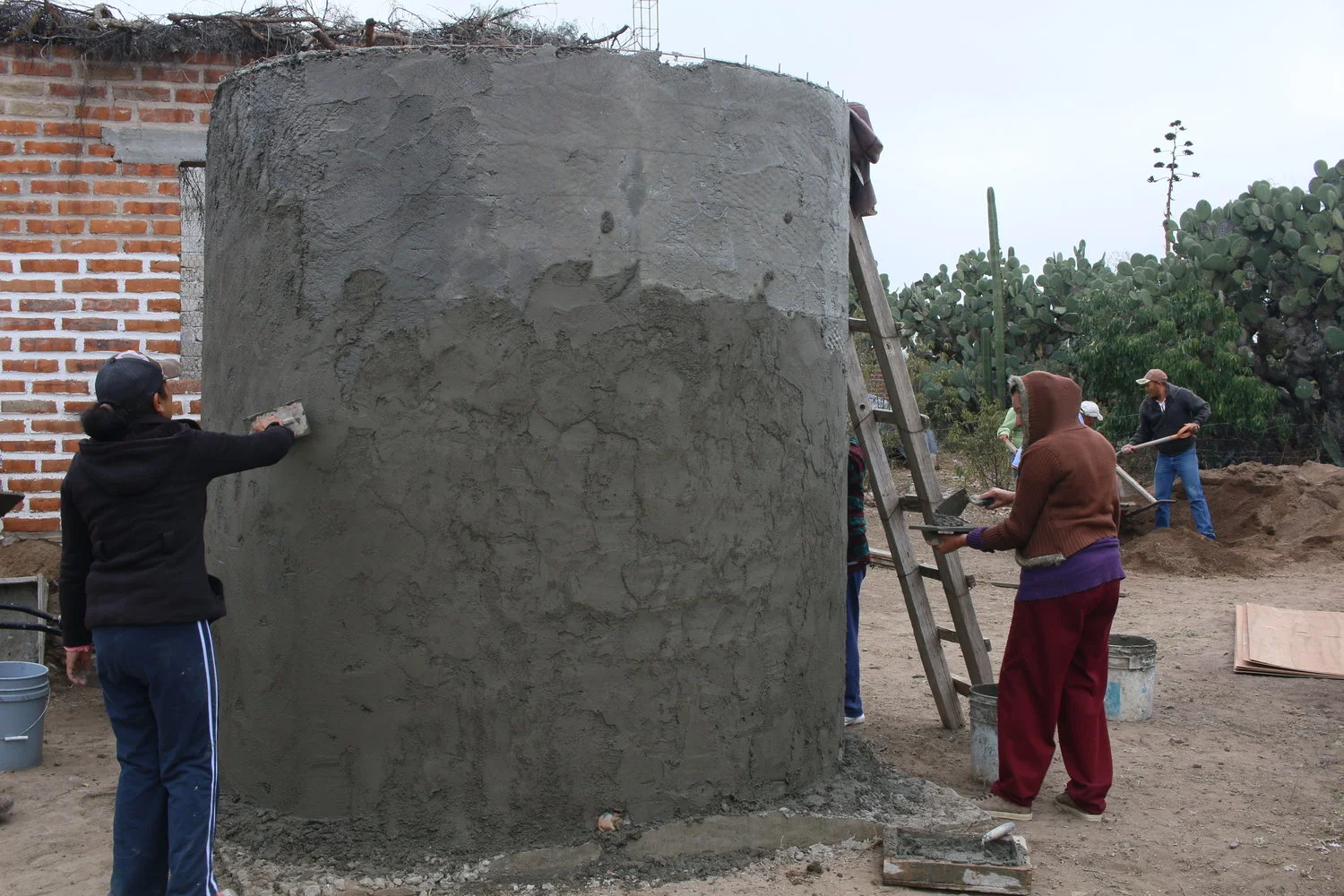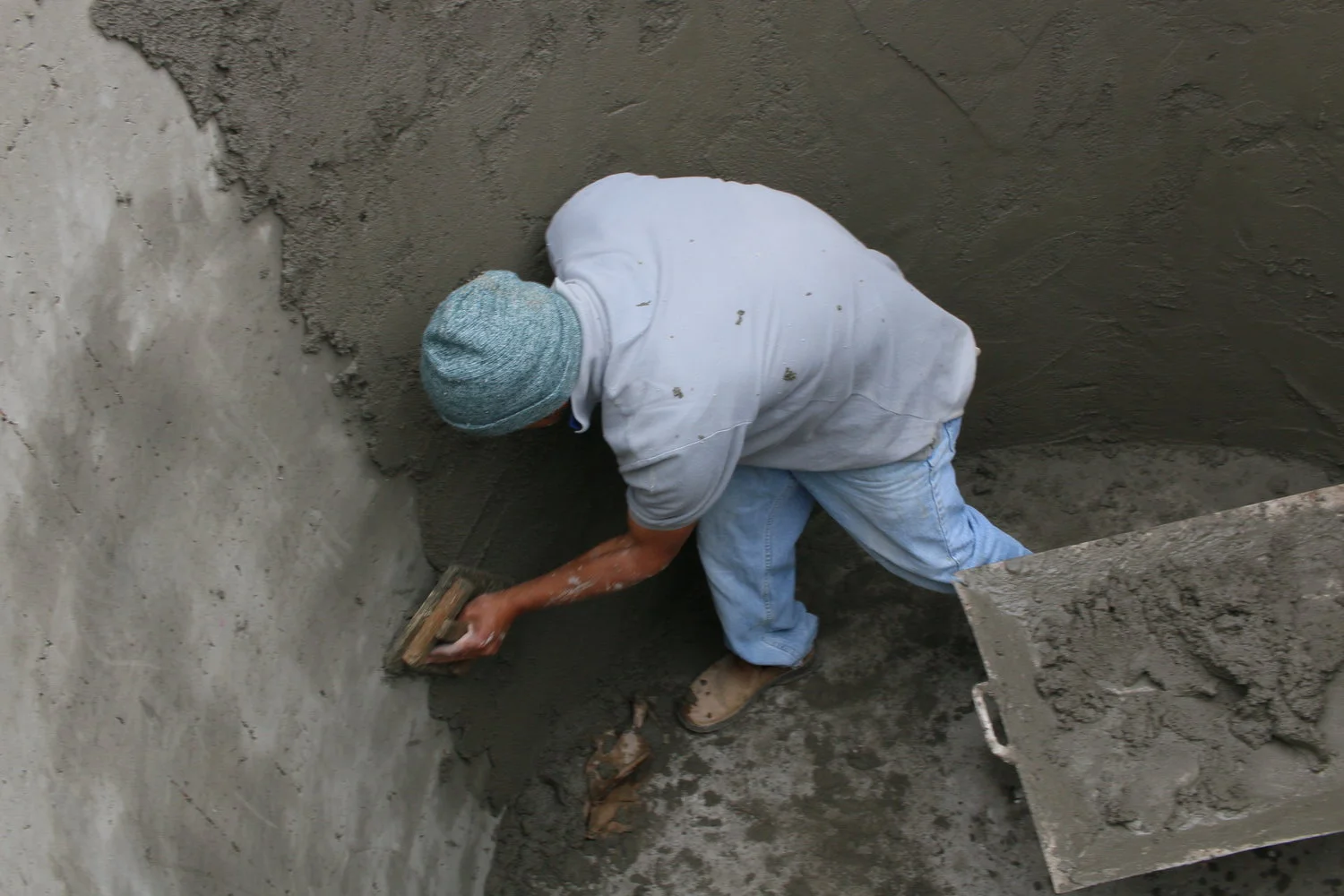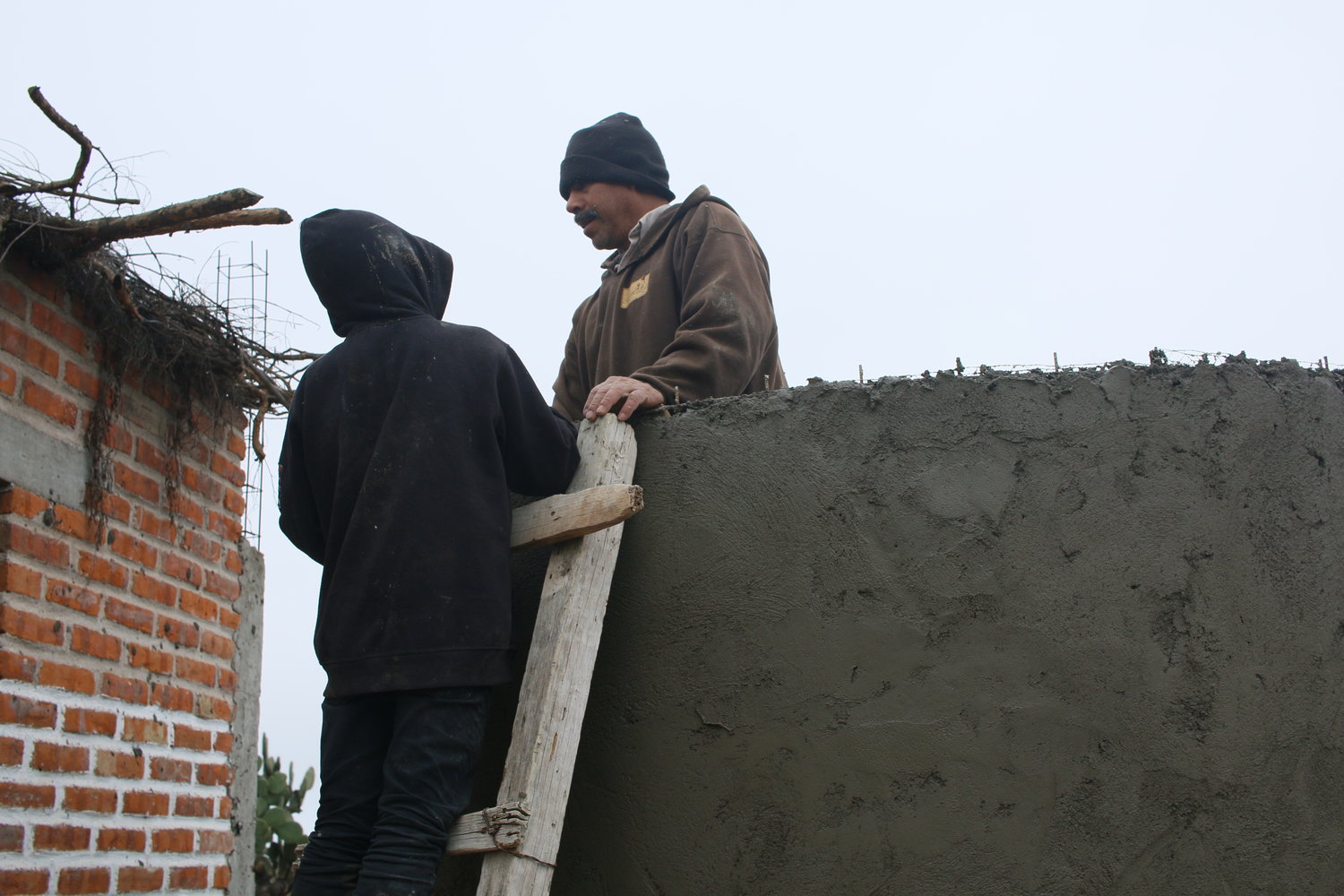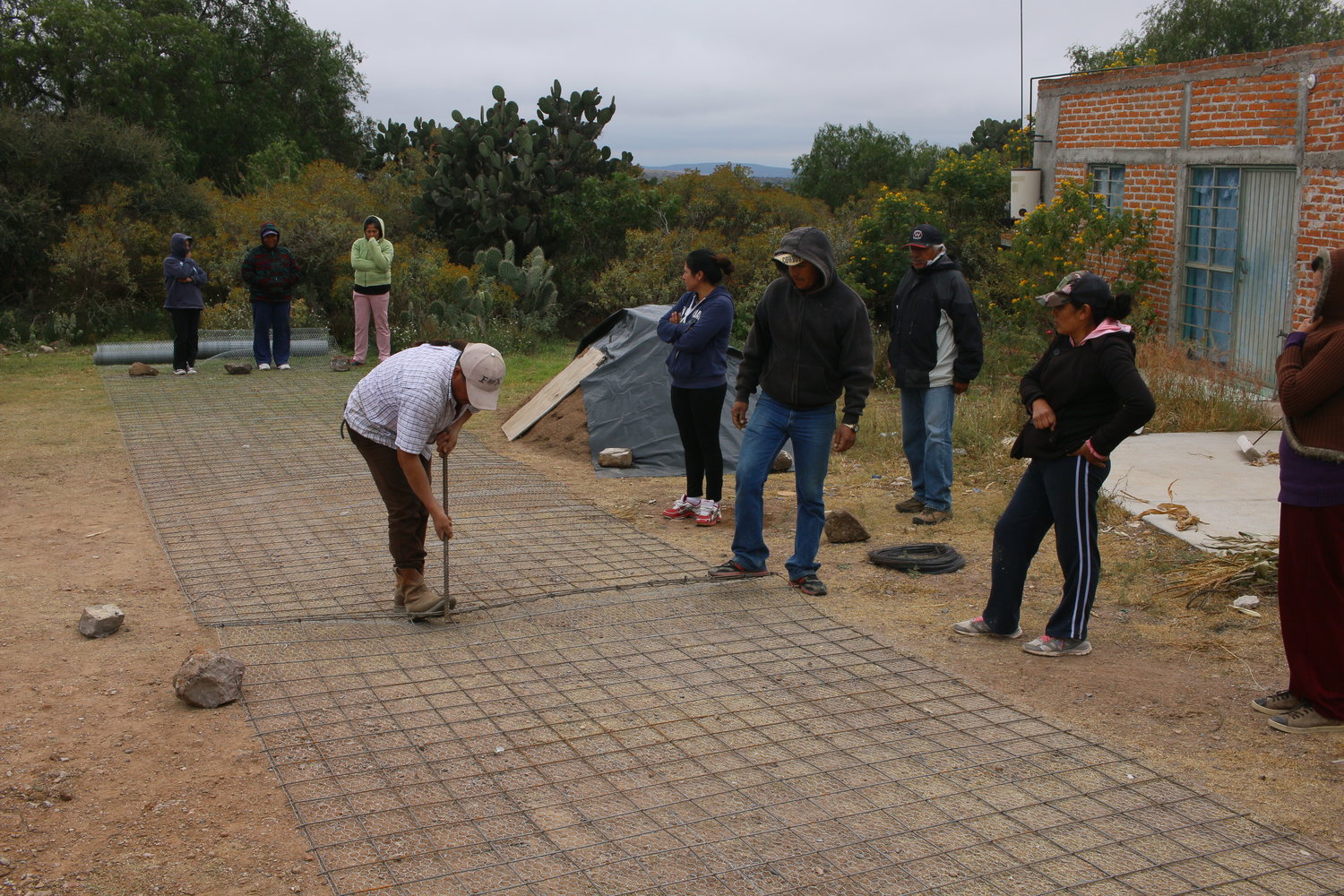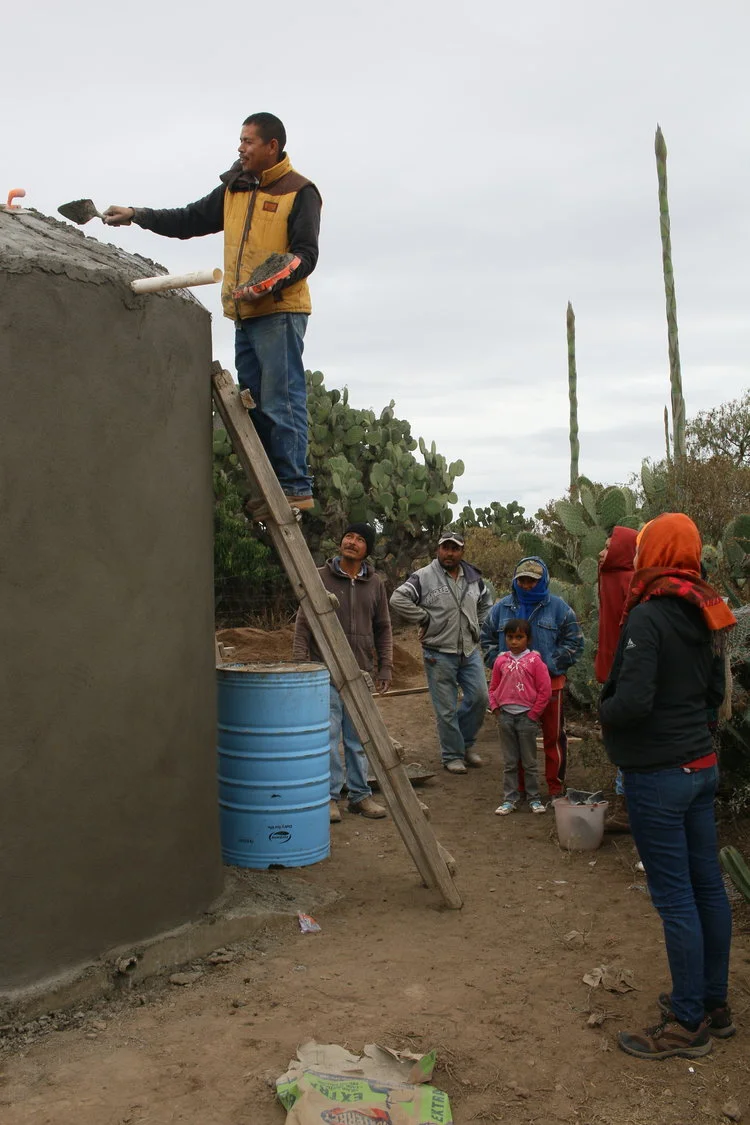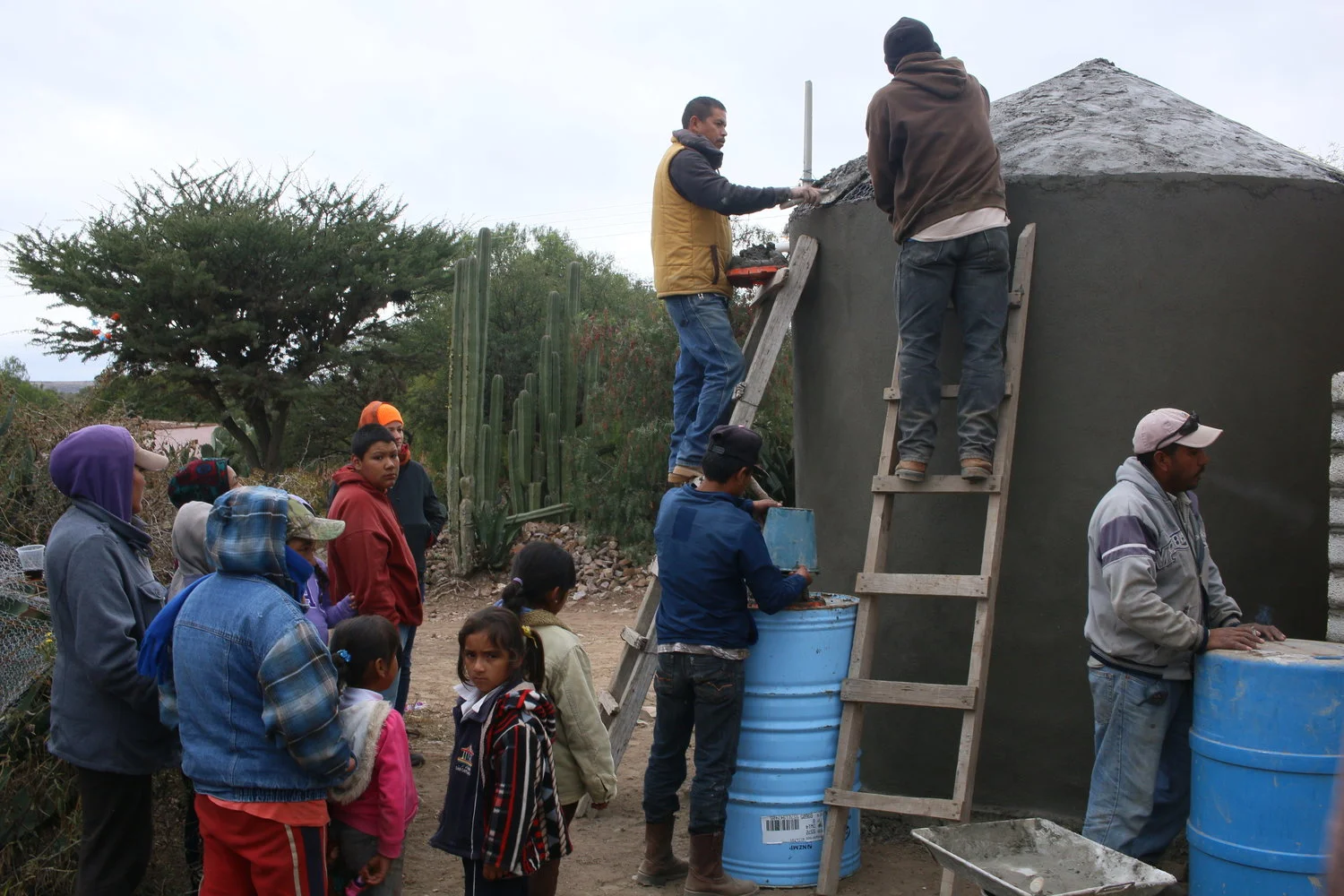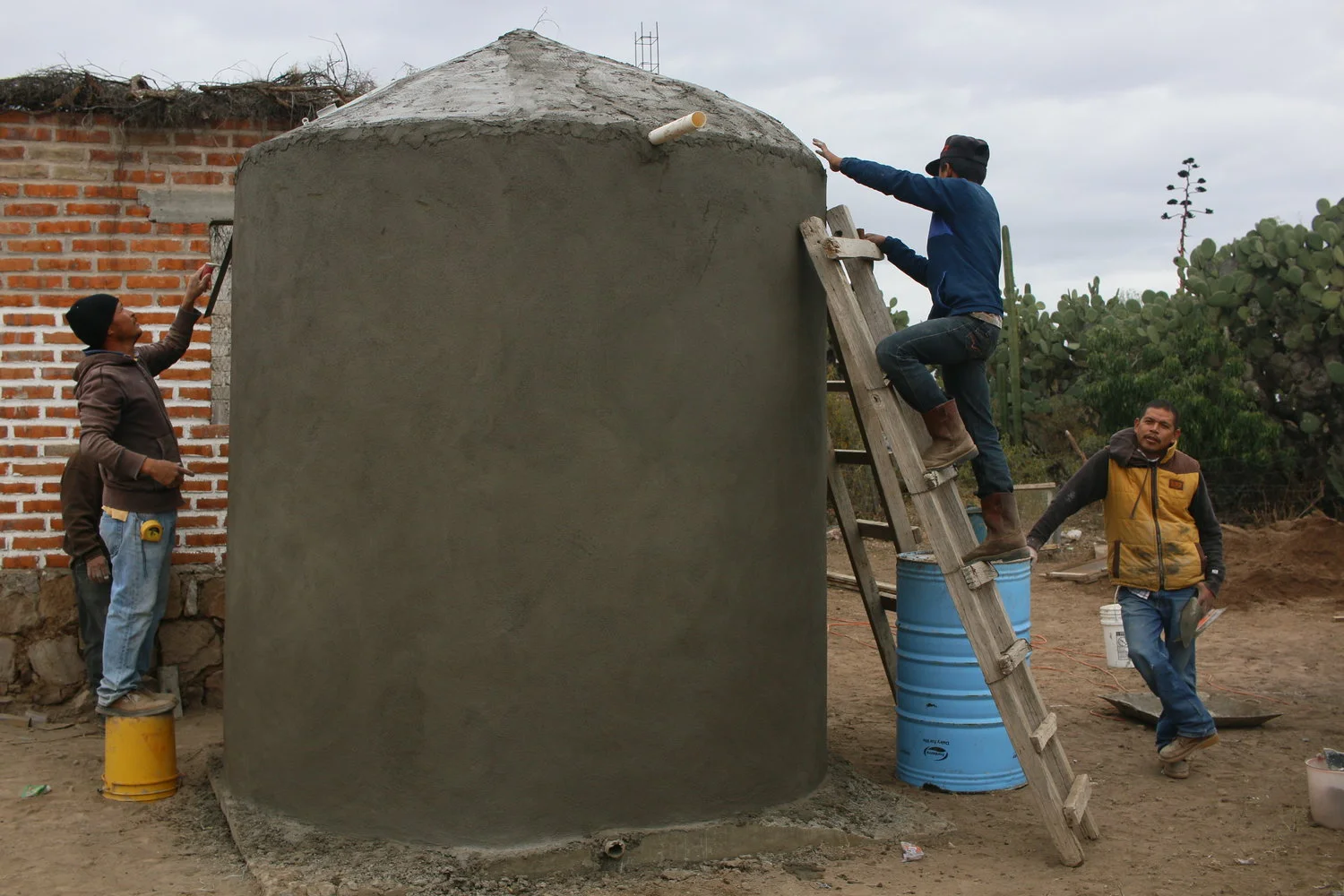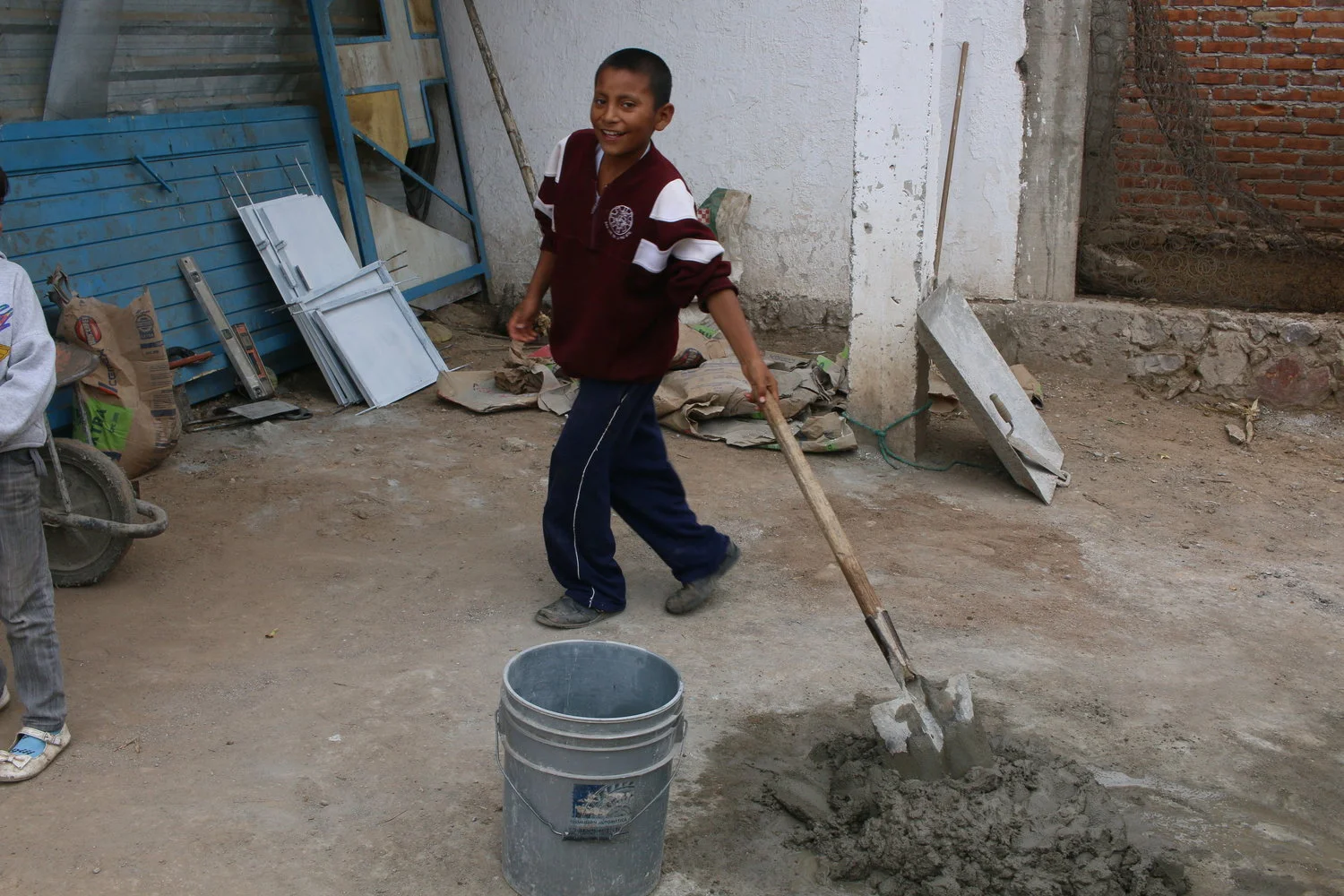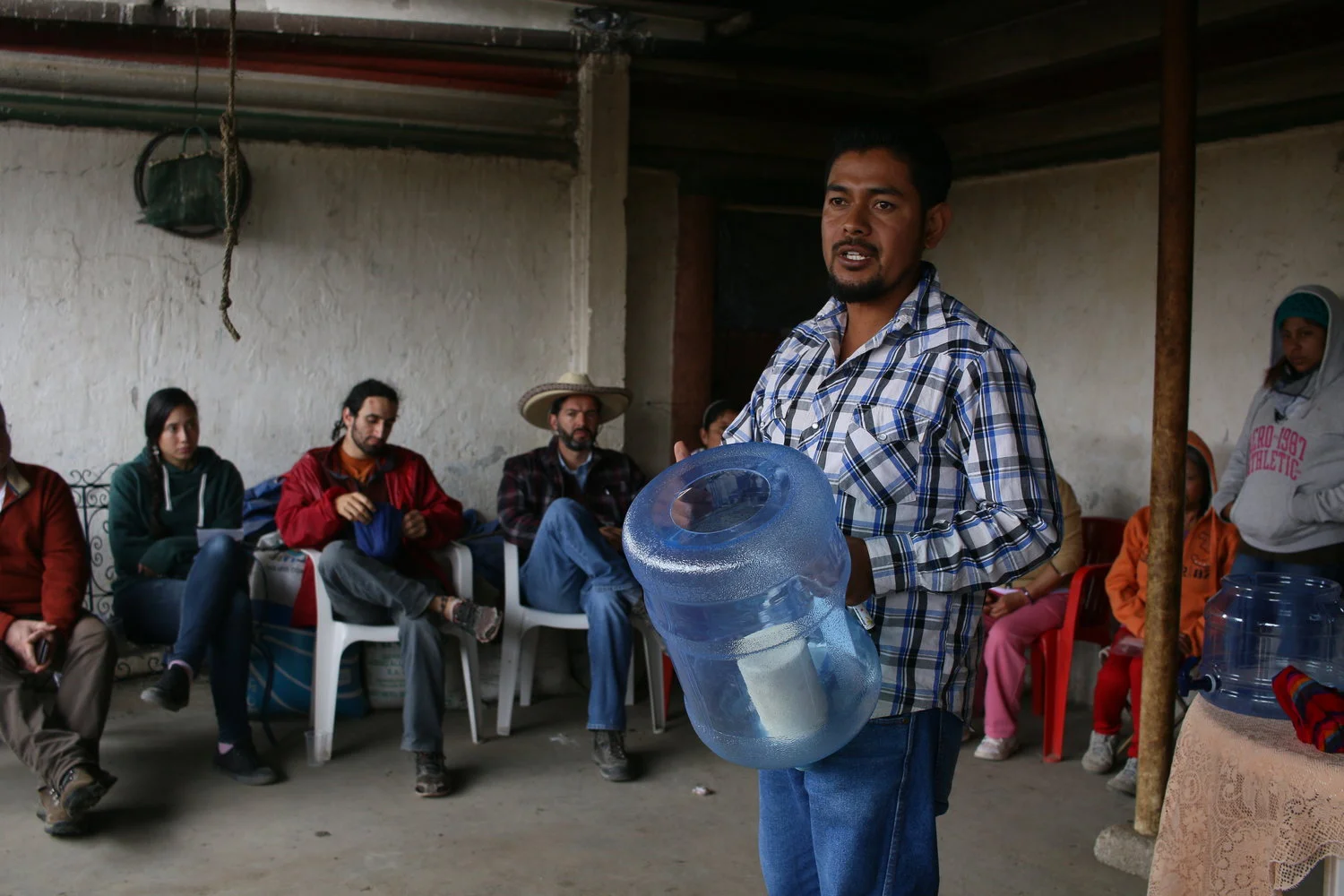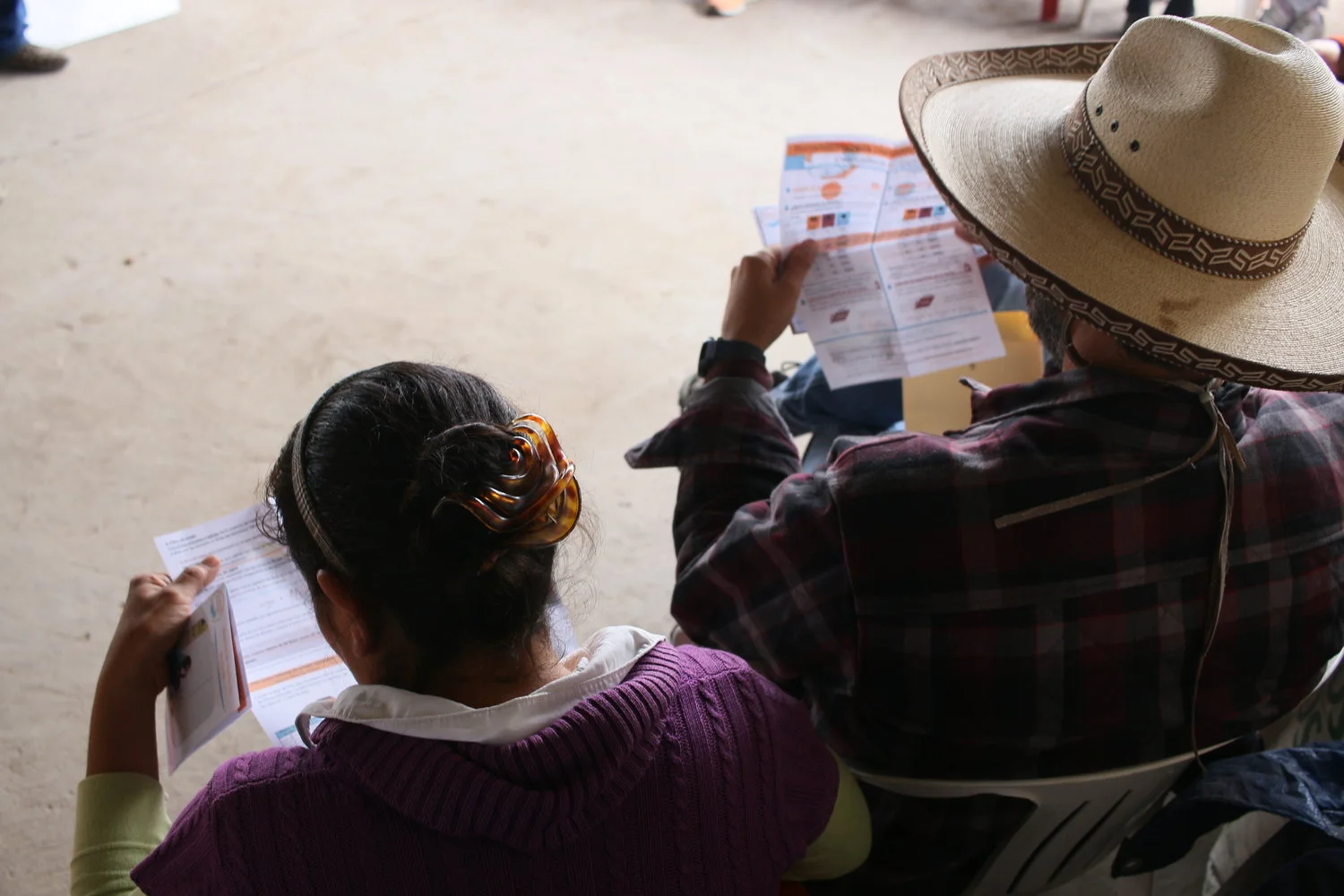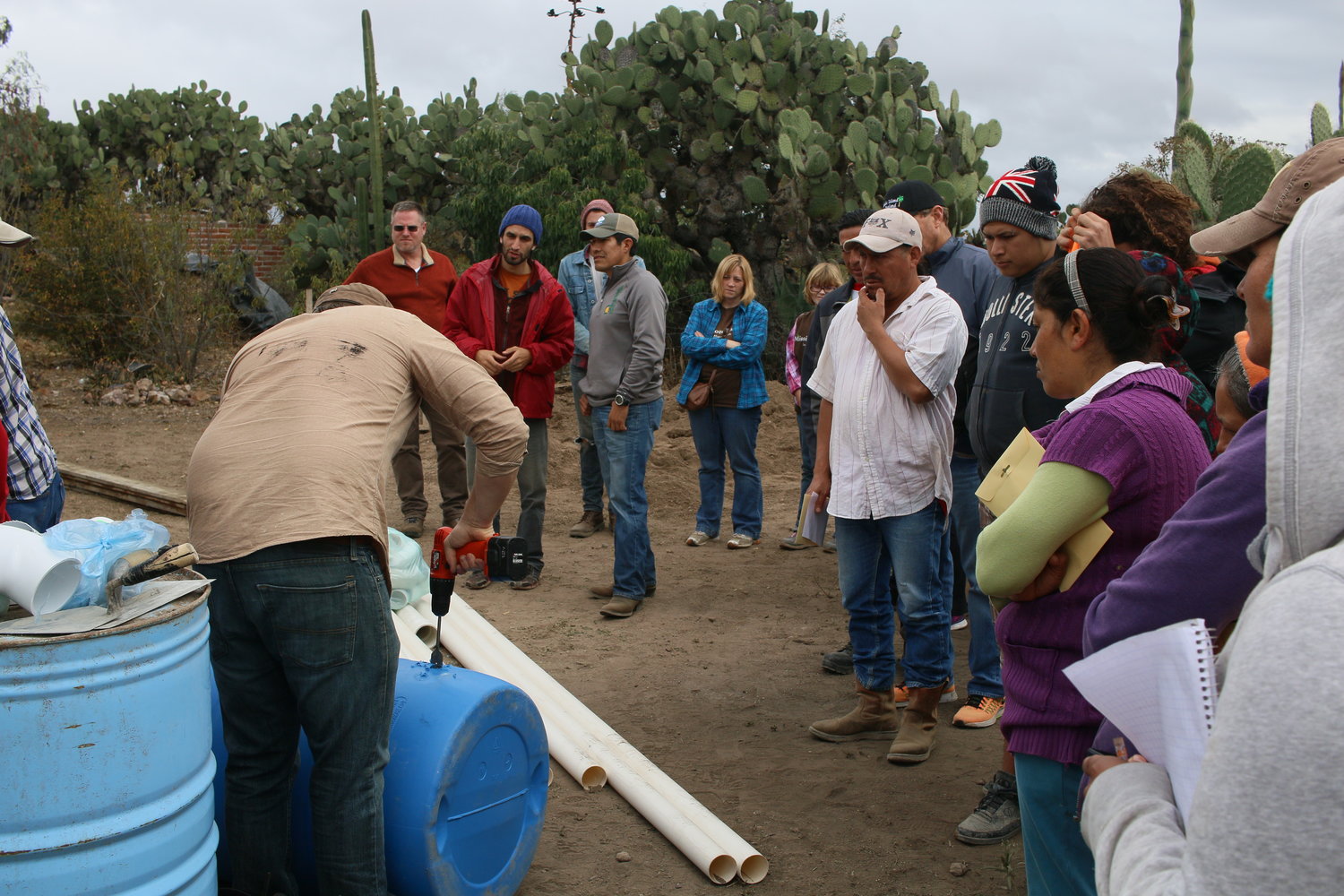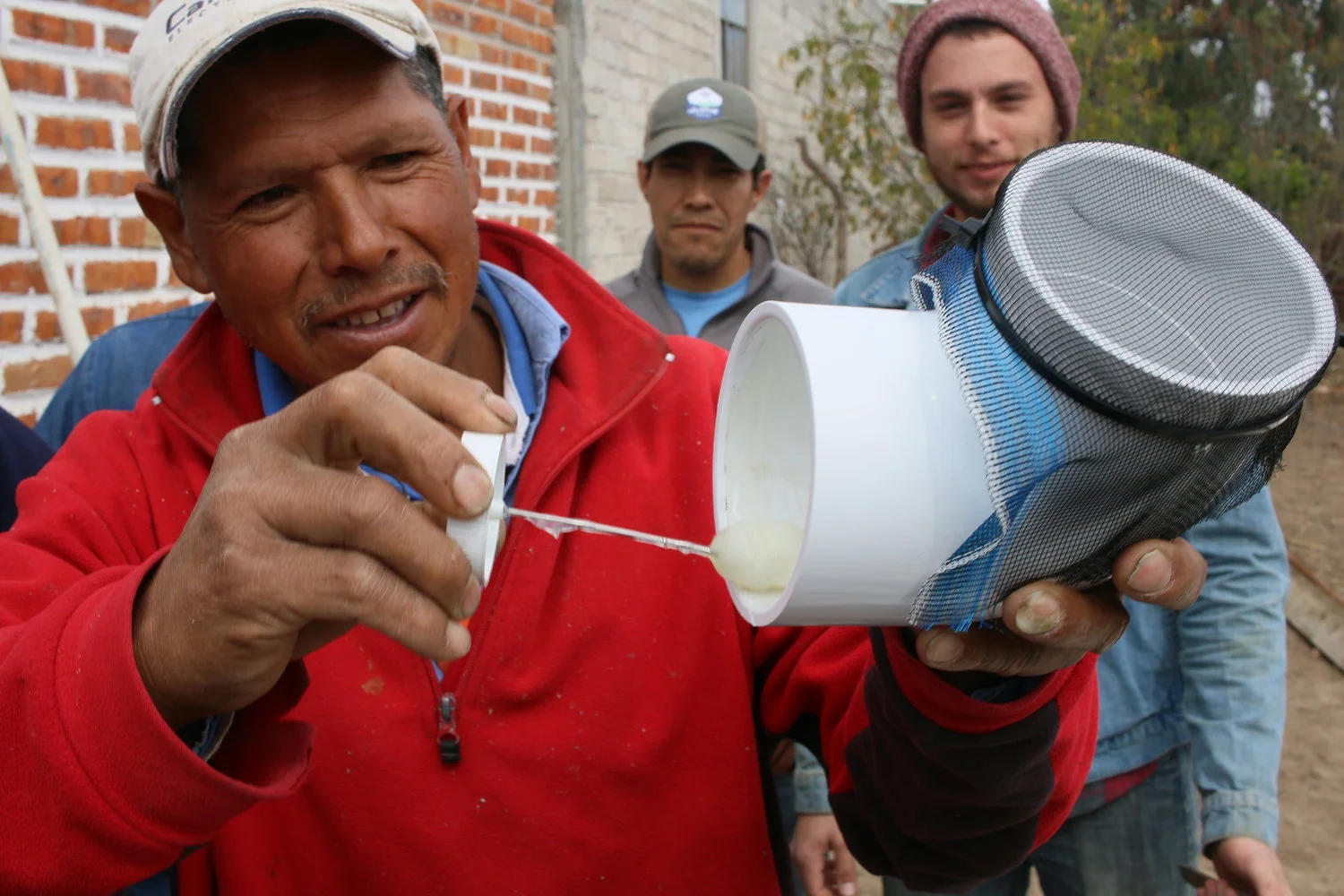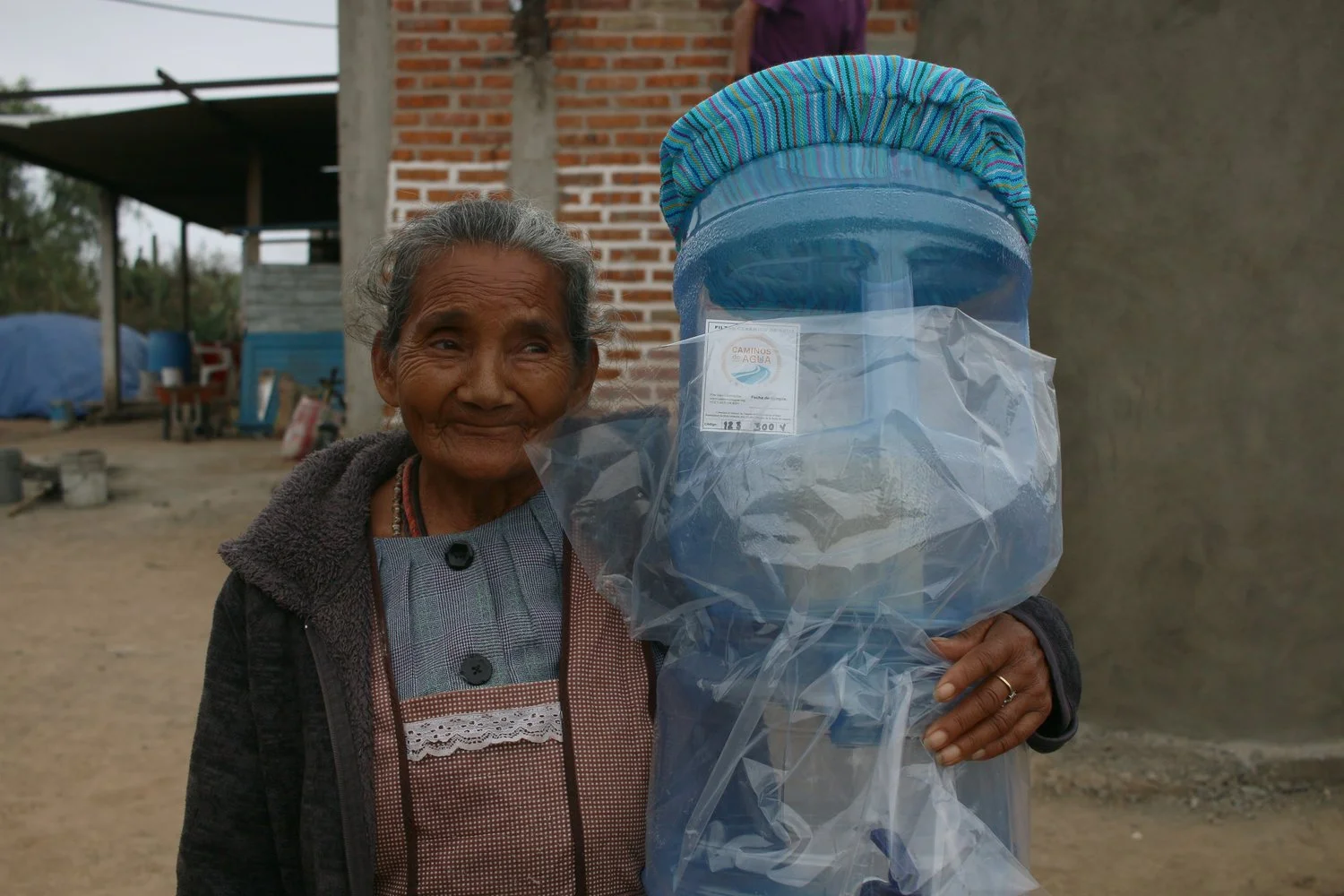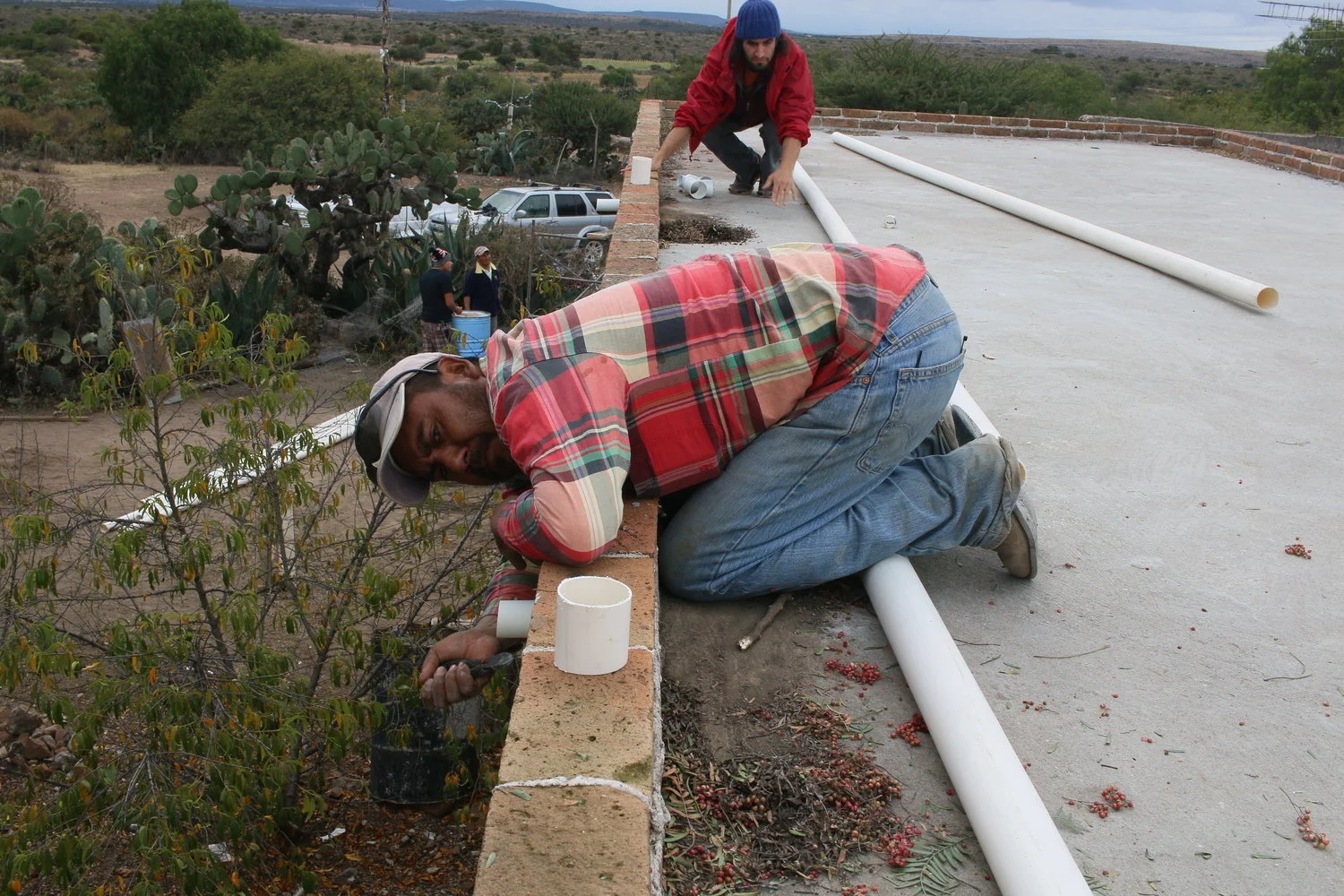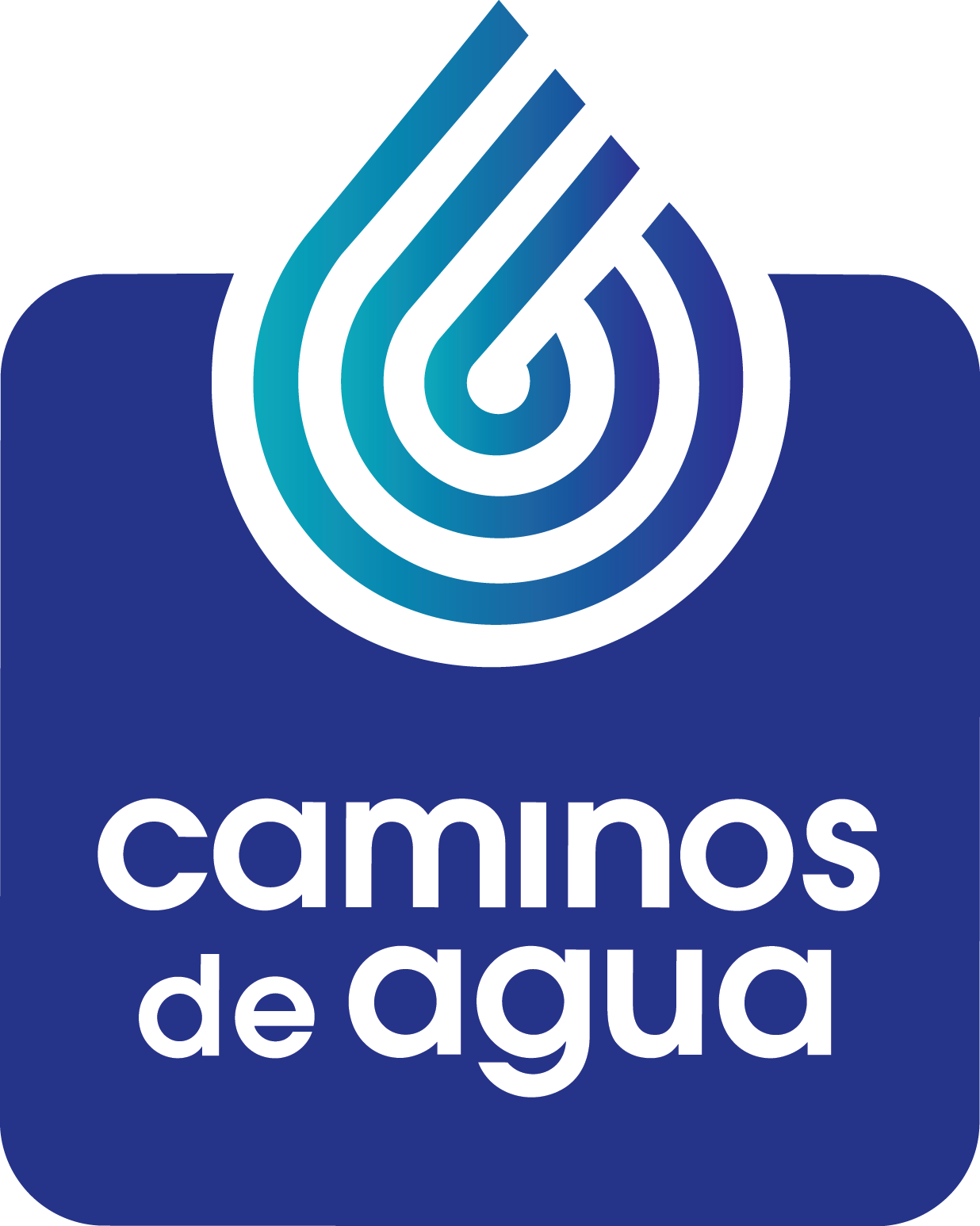Rainwater harvesting project: capacity training in San Luis de la Paz
Rainwater harvesting represents an inexpensive, easy to use, and sustainable water solution for local communities. Rainwater harvesting means that we are not extracting water and that means we are not interrupting the natural hydraulic cycle. So, it is a great solution for water access in the Independence Watershed where Caminos de Agua works.
San Luis de la Paz, near San Miguel de Allende, is a municipality with a large town at its center as well as many different outlying rural communities. Their current water situation is one of the worst in the region. Some people have access to water, but many sources are severely contaminated. Others only have access to 200 liters once or twice a month. Rainwater harvesting combined with any biological treatment is an appropriate solution for their water problems. Rainwater harvesting will increase their access to water and at the same time make sure that there are no chemicals or minerals contamination. After biological treatment their rainwater will be safe, healthy and sustainable water.
Caminos de Agua started a rainwater harvesting project together with four rural communities of San Luis de la Paz this fall. Last week (November 7-13, 2016) to begin the rainwater harvesting project, we ran a capacity training in Llano Verde, one of the four participating communities. Families from the other three communities came to Llano Verde for this one-week training to learn how to build their own rainwater harvesting systems. During the training, the participants built one rainwater harvesting system and cistern. The two cisterns will benefit eleven families in the Llano Verde community. The participants from the three other communities will now lead the process of building cisterns in their communities. They all will support each other in the coming weeks.
Saul Juarez and Dylan Terrell led this capacity training in an empowering way. They took a step back and watched and supported the participants (some who had more experience than others in rainwater harvesting) and the work was mostly done by the community members themselves. By Friday, at the end of the capacity training, one cistern was finished, and several others were started. Saul Juarez and Dylan Terrell closed the training with a talk with the community members where all water issues were discussed. Different kind of contaminants were explained and what rainwater harvesting does. The importance of treating your harvested rainwater for biological contaminants was emphasized. During this discussion, our new educational materials were used. Now that we have written materials the participants have the possibility to review their questions after the training. When this project is completed there will be six new cisterns.
To encourage biological contaminant treatment, Caminos de Agua distributed 16 ceramic water filters to the participating families, which were financed by Mission for Life.
